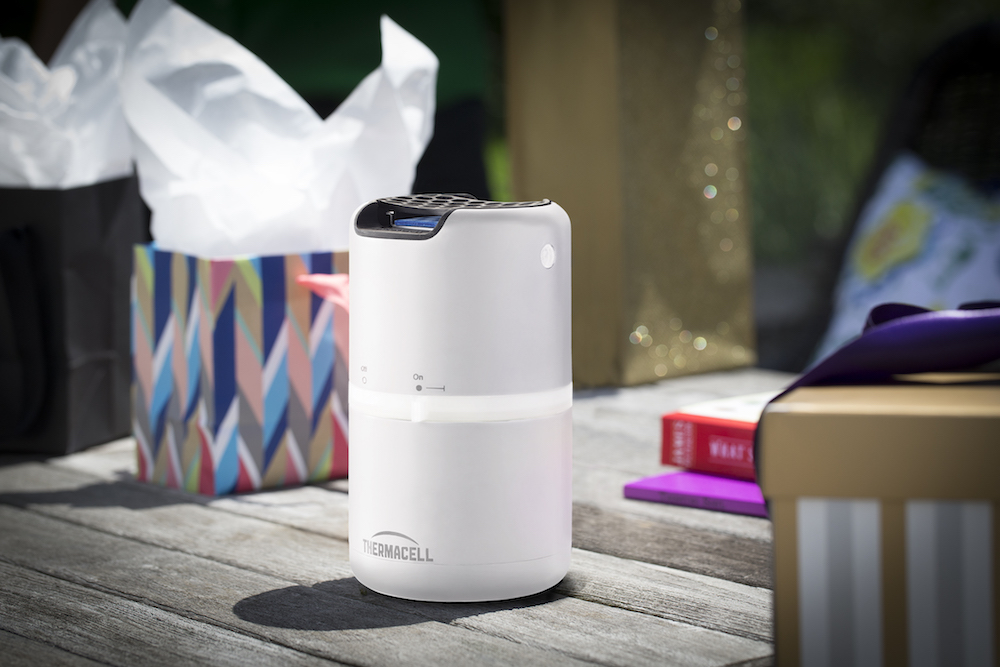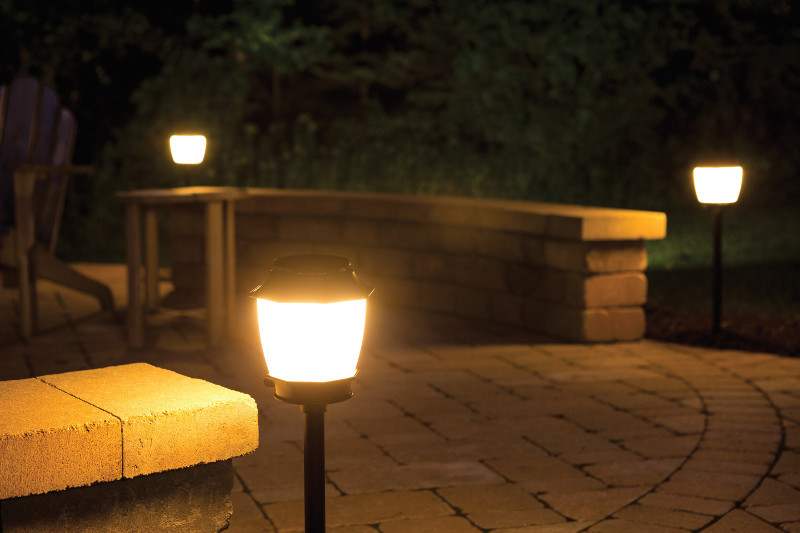
My husband is so chivalrous that he takes all my mosquito bites. It’s true. We can be seated next to each other on the deck and he will get mercilessly pestered and eaten alive as I pour another glass of rosé and proclaim the glory of a Minnesota summer evening. I’ve seen the same thing happen in bigger groups too. There just seem to be people who mosquitoes find more delicious than others. There is, it turns out, a pretty simple scientific explanation. Mosquitoes are attracted to carbon dioxide which larger people emit more of. Ditto higher body temperatures (which also explains why pregnant women get more than their share of mosquito “love”). And why must they target ankles, feet and necks? Because mosquitoes love bacteria and this is where it tends to be abundant. Their bites are painful and itchy but also potentially dangerous as they can transmit diseases such as West Nile and St. Louis Encephalitis. It’s in everyone’s best interest to get rid of, or at least repel them, for personal health and outdoor enjoyment. There are many lotions, sprays, etc. that can be applied to your skin and clothing to discourage mosquitoes but if you start with your outdoor environment, you might be able to do with less and save yourself that shower before bed.
Prevention
An ounce of prevention is worth a ton of cure (or insecticide) so spend a little time trying to make it difficult for an adult female to find a good spot in your yard to lay her eggs. The key is getting rid of all standing water. Tip over anything in your yard that can hold it—kiddie pools that aren’t in use, garden pots that aren’t in use, and drill holes in the bottom of tire swings, etc. for proper drainage. Shake off tarps covering wood piles and sand boxes. Even a tiny amount of water can be a fertile place for hundreds of mosquito eggs (which hatch in 2-3 days). Keep your gutters clear so rain water can wash out and avoid piles of debris or leaves that can make for a damp breeding ground. If you have an ornamental pond or other water feature you can use Mosquito Dunks which kill mosquito larvae but safe for fish, birds and other animals.
The Natural Route
You will probably still have mosquitos even if you do your best to reduce their breeding grounds so then the choice is how to fight them. Do you repel, kill or both? Chemical or natural? To repel them naturally many people find essential oils helpful. Citronella, a form of lemongrass, is the most well-known but rosemary, cedar and geranium are also popular. You can find them in candles, sprays, diffusers, lamps and incense sticks. Some people plant these herbs in patio pots or near seating areas to deter mosquitoes but this isn’t very effective as the leaves need to be crushed to release their scent. Essential oils certainly smell better than synthetic repellents but they work for a shorter period of time and are less potent. If your yard is in an area near a pond or other wetland and you’re committed to going the natural route there are products such as Mosquito Magician that can be connected to your in-ground sprinkler system and sprayed at regular intervals. Garlic spray used on the perimeter of the yard and seating area is another option. It can be applied using a canister or hose, or by a professional. It repels and, depending on the formulation, kills mosquitoes and their larvae. Yes, it smells like you’re making aioli for a thousand, but just for an hour or so.
The Chemical Route
Vaporizers
There are a number of products that repel mosquitos by emitting a people and pet-safe pesticide through vaporization. A popular model is made by Thermacell. These cordless devices use butane cartridges to heat small mats saturated with allethrin, a synthetic form a natural repellent found in chrysanthemum plants. Once heated the pesticide in the mat vaporizes and repels mosquitos in a 5 x 15 foot area. Available in portable, backpack, patio and even lantern versions it’s well-regarded by both outdoor magazines and Amazon reviewers.
A newer vaporizer product is the NuTone light. It’s a landscape light and mosquito repellent in one. The repellent activates 15 minutes after being turned on and protects 110 square feet. Four-six fixtures provide coverage for an average size patio or deck. More expensive initially, these dual-purpose fixtures need infrequent refills, making them relatively hassle-free.
Sprays
Chemical spraying to kill mosquitoes and their larvae is a mainstay. You can do it yourself using your garden hose or sprayer and a jug of insecticide from the hardware or home improvement store. The product is sprayed on foliage and structures in the yard and once dry can work for 2-3 weeks. The main drawback is that with the elimination of unwanted insects comes the loss of those that pose no harm and can be beneficial to gardens and the environment (i.e., pollinators and butterflies). You can mitigate this risk somewhat by avoiding flowering plants and spraying in the early morning or evening when pollinators are dormant.
There are several companies in the Twin Cities that offer professional spraying services and automatic misting systems that are installed like a sprinkler system in the yard and release a mist of pesticide at regular intervals throughout the day. Mosquito Squad was one of the first. Using a backpack and what looks like a leaf blower they spray the perimeter of your yard with permethrin, an odorless chemical insecticide that is CDC/FDA approved and proven to kill mosquitoes and ticks when sprayed on foliage. They also offer a natural solution containing essential oils including peppermint, lemongrass and rosemary. Unsurprisingly, the permethrin works better, up to 85% effective as reported by their customers but for homeowners who want a natural solution and have a moderate mosquito problem, it’s a reasonable option. They can spray one-time for a special event, i.e., grad party or barbecue, starting at about $115 (depending on yard size) or do regular spraying, 6-9 treatments from May-September.
Summer is too precious to let mosquitoes drive you inside. If you don’t have a large, sweaty friend who’ll stay by your side and take your bites, you might want to consider one of these options to keep these uninvited diners and potential disease carriers away from your family and guests.
by Laurie Junker























